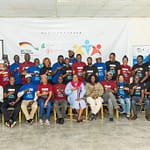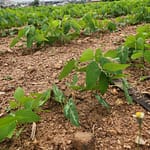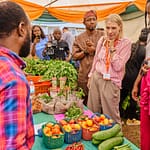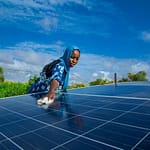The African Group of Negotiators (AGN), led by Ambassador Ali Mohamed, has issued a clarion call for substantial and immediate climate action as COP29 unfolds in Baku. Representing 54 African nations, the AGN highlighted Africa’s acute vulnerability to climate impacts and set forth key demands aimed at securing the continent’s future in the face of intensifying climate change.
Speaking at the Joint Opening Plenary of COP29, Amb. Mohamed emphasized that “COP29 must deliver meaningful results that send a clear signal of the multilateral system’s ability to address the most pressing global challenges effectively.” He outlined three primary goals critical to Africa’s climate agenda: ambitious climate finance, addressing loss and damage, and advancing a just transition.
The AGN’s top priority is achieving a robust and transparent climate finance goal that meets the continent’s needs. Africa is calling for $1.3 trillion annually by 2030, primarily through grants and highly
concessional loans to support adaptation, mitigation, and loss and damage efforts. “Our vision for a New
Collective Quantified Goal (NCQG) sends a strong message to the global financial system on the need for
reform, especially addressing debt sustainability for developing countries,” Amb. Mohamed stated.
Africa’s climate vulnerability costs the continent up to 5% of its GDP annually, with countries diverting nearly 9% of their national budgets to address climate impacts. The AGN stressed the need for rapid operationalization of the Loss and Damage Fund, including a replenishment mechanism to support communities hardest hit by climate impacts. “We applaud the appointment of Mr. Ibrahima Sheikh Diong as the first Executive Director of the Fund,” Mohamed said, stressing that “timely fund mobilization is essential” to protect Africa’s most vulnerable communities.
Amb. Mohamed emphasized the need for an equitable and inclusive Just Transition Work Programme
that upholds sustainable development and poverty eradication goals. He highlighted the importance of
integrating human mobility concerns, as climate-driven displacement already affects millions in Africa. In 2023 alone, over 5.7 million Africans were displaced by climate-related disasters. “We must integrate climate impacts and migration into just transition dialogues to mobilize the resources necessary to protect affected communities,” Mohamed added.
The AGN underscored that while private-sector financing can play a complementary role, public international finance remains essential. Mohamed criticized recent proposals that rely heavily on private finance without adequate public contributions, stating, “Private finance is not a substitute for the commitment that developed countries owe under the principle of Common But Differentiated Responsibilities (CBDR).” The AGN’s ideal outcome for climate finance is an agreement that prioritizes public grants and highly concessional loans to reduce the debt burden on developing countries. Additionally, the AGN expressed concerns about the framing of carbon trading as climate finance, noting that carbon markets should be a supplementary mechanism rather than a replacement for direct financial support. “Carbon trading should be seen as an additional tool, not a substitute for committed climate finance,” Mohamed emphasized.
The AGN voiced strong reservations about the potential impact of unilateral trade measures, particularly
the Carbon Border Adjustment Mechanism (CBAM), on African economies. CBAM imposes tariffs on
imports based on carbon emissions, a measure that could severely affect African countries reliant on
carbon-intensive industries. “Unilateral measures must not become barriers that undermine Africa’s
development,” Mohamed stated, calling for greater consideration of African nations’ economic
circumstances.
As COP29 progresses, the AGN is determined to ensure Africa’s concerns are reflected in global climate
decisions. Amb. Mohamed called for equitable distribution of climate resources, pointing to the stark
disparity in climate finance flows. Despite Africa facing some of the world’s most severe climate impacts,
the continent receives less than 3% of global climate investment. “We are at a crossroads—facing two
gaps which can easily turn into deadly cliffs,” Mohamed warned, referencing the urgent need to bridge
both emissions and financing gaps.
Amb. Mohamed closed by assuring the AGN’s commitment to a COP29 that advances the principles of
multilateralism and climate justice. “We look forward to working together to achieve outcomes that
reflect our shared vision and our commitments to a resilient and sustainable future for all,” he
concluded.
The AGN, established in 1995, represents Africa’s interests in climate negotiations. It operates with
guidance from the African Ministerial Conference on Environment (AMCEN) and the Committee of
African Heads of State and Government on Climate Change (CAHOSCC). Chaired by Kenya, the AGN is led
by Ambassador Ali Mohamed, Special Envoy on Climate to President William Ruto.












